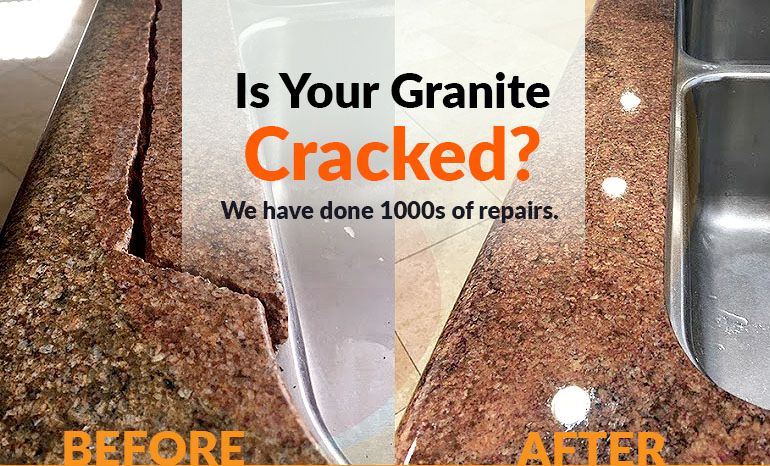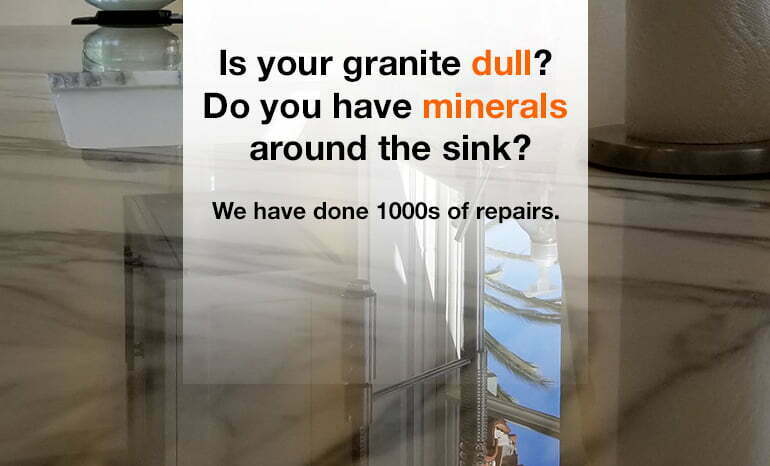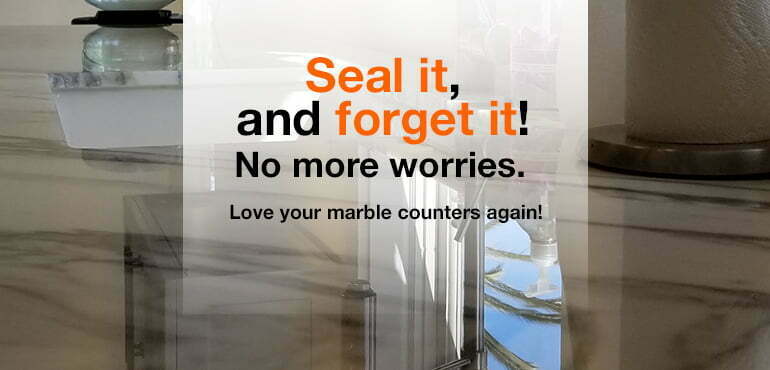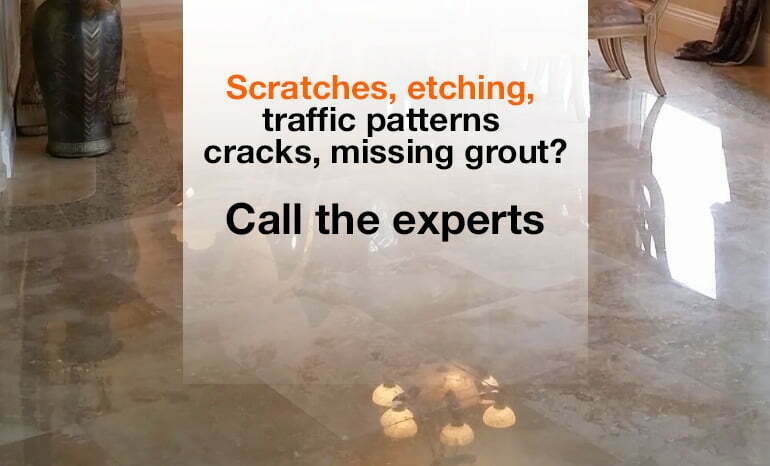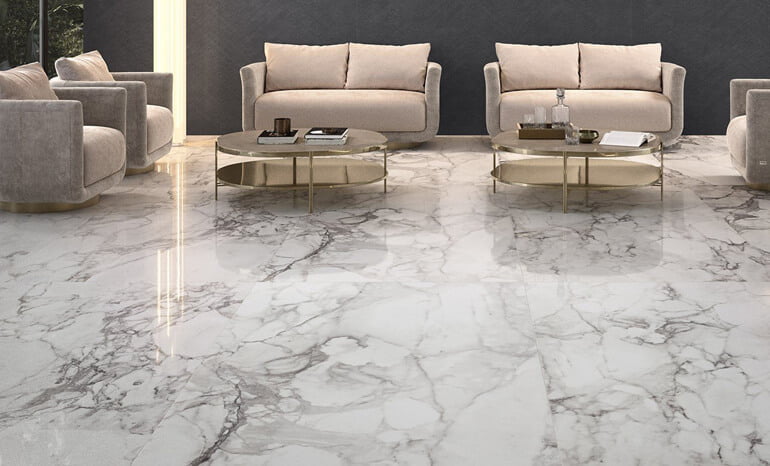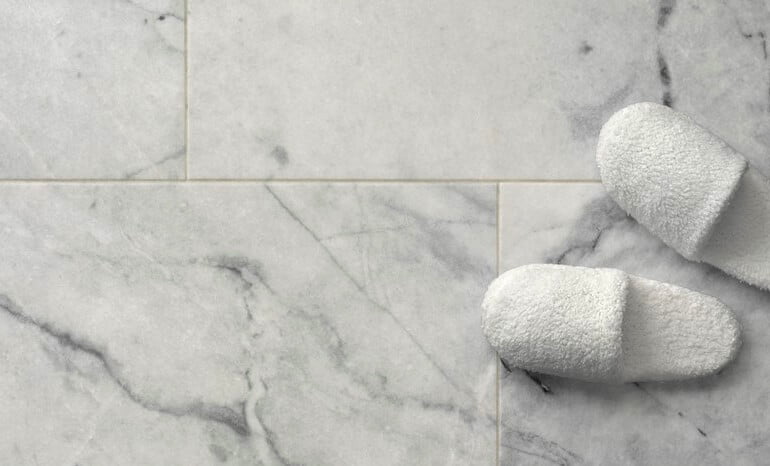Granite, with its intricate patterns and robust durability, has long been a favorite for homeowners seeking both elegance and practicality in their kitchen and bathroom surfaces. However, even granite, known for its hardness and resistance to damage, is not without drawbacks. One such issue that can mar its beautiful surface is rust staining. These stains, typically resulting from prolonged contact with metal objects left on the surface, can seem daunting to remove. Yet, with the right approach, homeowners can effectively tackle these blemishes, restoring their granite to its original splendor.
Understanding Rust Stains on Granite
Rust stains on granite surfaces can be both unsightly and perplexing, especially considering the stone’s reputation for durability and resistance to damage. These stains typically emerge when metallic objects, such as cans, utensils, or even certain types of cookware, are left on the granite surface for an extended period, particularly in the presence of moisture. The moisture facilitates a chemical reaction between the iron in the metal and the oxygen in the air, leading to the formation of rust. This rust can then seep into the porous surface of the granite, creating stains that are not just on the surface but embedded within the stone itself.
Granite, despite its hardness, contains microscopic capillaries that can absorb liquids. When rust forms, it’s not merely a surface stain but a compound that can penetrate these tiny spaces in the granite. The result is a stain that is not only visually unappealing but also challenging to remove because it sits below the surface layer of the stone.
The nature of rust stains means they are often more stubborn than other types of stains, like those from food or oil. This is because rust binds chemically to the stone, whereas other substances might only cause a surface stain that doesn’t interact with the stone’s material on a chemical level.
It’s also important to note that the susceptibility of granite to rust staining can vary depending on the stone’s specific composition and the sealant used (if any). Some varieties of granite are more porous and, therefore, more prone to absorbing stains. Meanwhile, a high-quality sealant can provide a barrier that reduces the stone’s porosity, making it less likely for rust to penetrate and cause staining.
Understanding these factors is crucial for effectively preventing and treating rust stains on granite. It underscores the importance of not only regular maintenance and prompt stain treatment but also the careful selection of materials placed on granite surfaces, especially in areas where they might be exposed to moisture.
Preventing Rust Stains
Preventing rust stains on granite surfaces is far more manageable than removing them. This proactive approach not only maintains the pristine appearance of your granite but also preserves its longevity and value. Here are comprehensive strategies to keep rust at bay:
Choose Wisely What Sits on Granite
Be mindful of what you place on your granite surfaces. Metal objects, particularly those prone to oxidation like cast iron or steel, should never be left on granite, especially if they are wet or in a humid environment. Use coasters under metal cans, containers, or any decorative items made of metal to prevent direct contact.
Immediate Cleanup
Water and spills should be wiped up promptly, not only to prevent rust but also to avoid other types of stains and water marks. Regularly check areas around sinks and faucets where water might accumulate and ensure that these areas are kept dry.
Use Protective Barriers
Employing trivets or mats under potentially rust-inducing items can act as a protective barrier between the metal and the granite surface. This is particularly useful in kitchens where the use of cast iron pans or metallic utensils is frequent.
Ensure Proper Sealing
Applying a high-quality sealer to granite surfaces can significantly reduce their porosity, making them less susceptible to staining (including rust). While sealing doesn’t make granite entirely impervious to stains, it creates a protective layer that gives you more time to clean up spills before they penetrate the surface. It’s crucial to follow the manufacturer’s recommendations for the sealing product and reapply it as necessary – typically once a year – to maintain its effectiveness.
Maintain a Dry Environment
Reducing humidity and moisture on and around your granite surfaces can significantly decrease the likelihood of rust stains forming. Use dehumidifiers in highly humid environments and ensure that kitchens and bathrooms are well-ventilated to keep surfaces dry.
Regular Maintenance and Inspection
Regularly inspect your granite surfaces for signs of wear or damage to the sealant, which can increase the risk of staining. Quick action to reseal or repair areas that show wear can prevent rust stains from taking hold.
By integrating these preventive measures into your routine care of granite surfaces, you can avoid the aesthetic and structural issues associated with rust stains. Preventing rust stains not only contributes to the beauty of your granite but also to the overall hygiene and longevity of your surfaces, ensuring they remain a highlight of your home’s design for years to come.
DIY Methods for Removing Rust Stains
Removing rust stains from granite surfaces can seem daunting, but with the right DIY methods, it’s entirely manageable.
Before you start, it’s essential to clean the area with mild soap and water and dry it thoroughly. Test any cleaning solution on a small, inconspicuous area first to ensure it doesn’t damage the granite.
Here are a few go-to methods and tips for effectively tackling rust stains, ensuring your granite looks as good as new:
Baking Soda Poultice
Baking soda is a gentle yet effective cleaning agent for rust stains on granite. To make a poultice:
- Mix Baking Soda and Water: Combine baking soda with water to form a thick paste. The consistency should be similar to peanut butter to ensure it stays in place on the stain.
- Apply the Poultice: Spread the paste generously over the rust stain, covering it completely. Extend the application a few inches beyond the stain to ensure full coverage.
- Cover with Plastic Wrap: Place plastic wrap over the poultice, sealing the edges with tape to keep it moist. This setup allows the poultice to work effectively, drawing the rust out of the granite.
- Wait: Let the poultice sit for 24 to 48 hours. The baking soda will slowly absorb the rust stain from the granite during this time.
- Remove and Clean: Peel off the plastic wrap and wipe away the dried poultice with a soft cloth. Rinse the area with water and dry it thoroughly. If the stain persists, repeat the process.
Commercial Rust Remover
For stubborn stains, a commercial rust remover formulated for use on granite can be effective. Follow these guidelines for safety and efficiency:
- Choose the Right Product: Select a rust remover that’s specifically designed for natural stone surfaces. These products are formulated to be effective without damaging the stone.
- Test First: Always test the product on a small, inconspicuous area of your granite to ensure it doesn’t cause discoloration or damage.
- Apply as Directed: Follow the manufacturer’s instructions carefully. Typically, you’ll apply the product directly to the stain, wait for a specified period, then rinse it off.
- Rinse Thoroughly: After the waiting period, rinse the area well with water to remove any residue from the rust remover. Dry the surface with a soft cloth.
Lemon Juice and Salt
For light rust stains, a mild solution of lemon juice and salt can be used cautiously:
- Create a Mixture: Mix lemon juice with salt to form a paste.
- Apply Sparingly: Apply the paste to the rust stain and let it sit for a short period, no longer than 5 to 10 minutes, to avoid etching the granite.
- Rinse Off: Rinse the area thoroughly with water and dry it immediately to prevent the acid in the lemon juice from damaging the granite.
Precautions and Care
When using any DIY method to remove rust stains from granite, take the following precautions:
Avoid Abrasive Tools: Do not use abrasive scrubbers or brushes, as these can scratch the granite surface.
Be Patient: Rust stains can be stubborn. It may take several attempts to fully remove them.
Protect Surrounding Areas: When using commercial rust removers or lemon juice, protect surrounding surfaces from potential damage.
By following these DIY methods, you can effectively remove rust stains from granite, restoring the natural beauty and integrity of your stone surfaces. Regular maintenance and prompt attention to spills and stains will keep your granite looking pristine for years to come.
Professional Help for Stubborn Stains
If DIY methods fail to remove the rust stain completely, it might be time to call in professional help. Stone restoration experts have specialized techniques and products that can effectively remove rust stains without damaging the granite. While this option may be more costly, it ensures your granite surfaces are treated with the utmost care and expertise.
Sealing Granite to Prevent Stains
Sealing granite is a critical step in protecting it from stains, including rust. While not all granite requires sealing, many types do benefit from this protective barrier. Sealers help prevent substances from penetrating the granite’s surface, making it easier to clean spills and prevent stains. It’s generally recommended to seal granite countertops once a year, but the frequency can vary based on the granite’s porosity and the sealer’s quality.
Regular Maintenance for Lasting Beauty
When rust stains on granite prove stubborn despite your best DIY efforts, seeking professional help can be the most effective solution. Professional stone restoration services bring a level of expertise and access to specialized tools and products that go beyond the average homeowner’s capabilities. Here’s why turning to professionals can offer added value and help avoid common mistakes:
Expertise in Stone Care
Professionals specializing in stone care possess a deep understanding of different types of natural stones, including granite, and are well-versed in the chemistry of stains and the appropriate treatment methods. Their expertise allows them to accurately diagnose the cause of a stain and select the most effective treatment, reducing the risk of further damage.
Access to Advanced Techniques and Products
Stone care professionals have access to commercial-grade products and equipment not available to the general public. These products are often more effective at removing stubborn stains without harming the stone. Professionals also utilize techniques like poulticing with specific absorbent materials tailored to the type of stain, ensuring a deeper and more thorough clean.
Avoiding Common DIY Mistakes
Homeowners attempting to remove stubborn stains may inadvertently make mistakes that can worsen the problem. Common errors include:
Using Incorrect Cleaners: The use of acidic or abrasive cleaners can etch or scratch granite, permanently damaging the surface.
Overapplication of Products: Applying too much cleaner or poultice and leaving it on for too long can discolor the stone.
Inadequate Sealing: Incorrectly sealing the stone after stain removal can leave it vulnerable to future staining.
Professionals avoid these pitfalls through their knowledge and experience, ensuring the granite is treated correctly and effectively.
Long-Term Preservation of Your Stone
Professional stain removal does more than just eliminate the current problem—it helps preserve the beauty and integrity of your granite for the future. Professionals can also provide advice on proper stone care and maintenance, recommend sealing products, and offer tips to prevent future staining, contributing to the longevity of your natural stone surfaces.
Cost-Effectiveness
While hiring a professional may seem like a higher initial investment compared to DIY methods, it can be more cost-effective in the long run. Professionals ensure the job is done right the first time, preventing costly mistakes that could require expensive repairs or even replacement of the granite surface.
Peace of Mind
Perhaps the most significant value added by professional services is the peace of mind that comes with knowing your granite is in expert hands. You can trust that the stain will be addressed effectively without risking damage to your valuable stone surfaces, allowing you to enjoy the beauty of your granite worry-free.
In conclusion, while DIY methods can be effective for minor issues, professional help is invaluable for stubborn stains on granite. The expertise, tools, and techniques that professionals bring to the table offer a level of care and maintenance that preserves the beauty and value of your natural stone surfaces for years to come.
Ensuring Longevity and Maintaining the Elegance of Granite
Tackling rust stains on granite surfaces requires a blend of preventative measures, effective DIY solutions, and the discernment to know when to call in professional help. By understanding the nature of granite and the causes of rust stains, homeowners can take proactive steps to protect their valuable stone surfaces from damage.
Employing simple home remedies and proper cleaning techniques can often remedy these blemishes, preserving the aesthetic appeal and integrity of the granite. However, for stubborn stains that resist home treatments, turning to professionals offers not just a solution to the immediate problem but also an investment in the longevity and beauty of your granite surfaces.
Whether through DIY methods or professional services, the key to maintaining pristine granite lies in regular care, prompt attention to spills and stains, and a commitment to using the right products and techniques. By following these guidelines, homeowners can ensure that their granite countertops remain a stunning and durable feature of their homes for years to come.
FAQ
Why does my granite have rust spots?
Rust spots on granite are usually caused by the oxidation of iron minerals that are naturally present in the stone, or they can come from metal objects left on the surface, especially in wet conditions. When iron reacts with water and oxygen, it forms rust. This reaction can happen either within the granite itself or on the surface from external sources of iron.
How do you remove rust from granite?
To remove rust from granite, you can create a poultice that draws out the stain. Mix baking soda with water to form a thick paste, apply it to the rust spot, and cover it with plastic wrap. Leave it for 24 hours, then remove and clean the area. For stubborn stains, a commercial rust remover safe for granite may be needed. Always test any cleaner on a small, hidden area first.
What causes brown spots on granite?
Brown spots on granite can be caused by several factors, including rust formation from the oxidation of iron minerals within the stone or from metal objects left on the surface. They can also result from spills of organic substances like coffee or tea that penetrate the surface if the granite is not properly sealed. Ensuring your granite is sealed and promptly cleaning up spills can help prevent these spots.
Does rust damage granite?
Rust itself doesn't cause permanent damage to granite, but it can leave unsightly stains that mar the surface. Granite is a very durable stone, and while rust stains can affect its appearance, they don't weaken the granite's structural integrity. Promptly addressing rust stains is key to maintaining the aesthetic appeal of your granite surfaces.
How do you fix corroded granite?
To fix corroded or rust-stained granite, you can use a poultice made from baking soda and water. Mix the two to form a paste, apply it to the stained area, and cover it with plastic wrap. Leave it for 24 hours, then remove and clean the area. If the corrosion is due to physical damage, like chips or scratches, professional refinishing or repair might be necessary to restore the surface.
Can rust stains on granite be permanent?
Rust stains on granite are not typically permanent. With the right cleaning methods, such as the poultice technique or using a commercial rust remover formulated for use on granite, you can effectively remove rust stains. However, the longer a stain remains, the harder it may be to remove, so it's important to act quickly. In cases where DIY methods don't work, a professional stone restorer can often remove or significantly reduce the visibility of the stains.
Will bleach remove rust from granite?
No, using bleach to remove rust from granite is not recommended. Bleach is a harsh chemical that can damage the surface of granite, causing discoloration and dulling the finish. Instead of bleach, it's better to use a poultice made from baking soda and water or a commercial rust remover that's safe for use on granite to tackle rust stains.
What poultice removes rust from granite?
A poultice that effectively removes rust from granite can be made using baking soda and water. Mix the two to create a paste with a consistency similar to peanut butter. Apply this paste directly onto the rust stain, covering it completely. Cover the area with plastic wrap and leave it for 24 hours. After removing the poultice, rinse the area with water. This method draws the rust out of the granite without damaging the stone.
Does sealing granite prevent stains?
Yes, sealing granite can help prevent stains. While sealing doesn't make granite completely stain-proof, it significantly reduces the stone's porosity, making it less likely to absorb liquids quickly. This gives you more time to clean up spills before they can penetrate and stain the granite. It's important to regularly reseal granite surfaces according to the manufacturer's recommendations, typically once a year, to maintain their resistance to staining.
Does white granite rust?
White granite, like all granite, contains small amounts of iron minerals. These minerals can oxidize, or rust, when exposed to water and oxygen, potentially leading to rust stains. However, actual rusting of the granite itself is unlikely. The rust you see is more often from external sources, like metal objects left on the surface, rather than the stone rusting from within.
Can you use rust remover on granite?
Yes, you can use rust remover on granite, but it's important to choose a product specifically designed to be safe for use on natural stone surfaces. Many commercial rust removers contain harsh chemicals that can damage granite, so look for a rust remover labeled as safe for granite. Always test the product on a small, inconspicuous area first to ensure it doesn't cause discoloration or damage to the stone.
What is the orange stain on my granite countertops?
The orange stain on granite countertops is likely a rust stain, which can occur when iron-containing objects come into contact with moisture on the surface of the granite, leading to oxidation and rust. This can also happen if the granite itself has iron minerals that oxidize. Treating the stain with a poultice or a granite-safe rust remover can help remove it. If the stain persists, it may be worth consulting a professional for advice or treatment.
